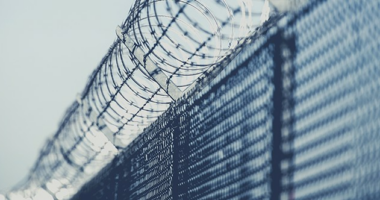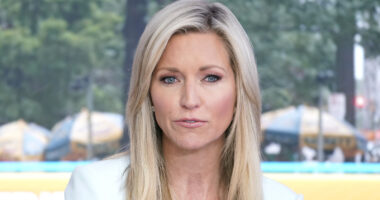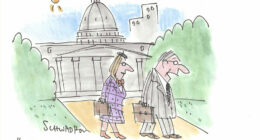Exclusive: Nine-year-old Intan Afriaty was watching cartoons with her family one Sunday morning, just as she usually did, when she felt the ground shake beneath her.
It was December 26, 2004 — a day she says she will never forget.
“I was at home with my mother, my aunt, my older sister, and my older brother,” she told 9news.com.au.

“Everything felt normal until suddenly I felt a very strong tremor coming from the floor.”
Neighbours started pouring into her home and the scene quickly turned chaotic. Then, she heard an explosion.
“I heard people shouting, ‘The water is rising, the water is rising’. I didn’t know what to do other than run, trying to save myself,” she said.
A tsunami hit her city, Banda Aceh, in Indonesia after a 9.1 magnitude earthquake about 250km away.
The US National Oceanic and Atmospheric Administration estimates waves reached 51 metres in height in her province.
Afriaty lost consciousness.
“When I came to, I found myself in the middle of the water, holding onto the body of a tsunami victim that was drifting with me,” she said.
“I was terrified, but the only thing on my mind was keeping my head above water. I had to survive.”

Afriaty was stuck in the water but spotted a refrigerator nearby. She swam towards it and found food inside.
She ate to fight off hunger until she met another survivor, who helped her until she safely reached shore.
Once she realised she was safe and well, Afriaty thought her family must be gone.
“My heart was shattered. I felt completely alone, like an orphan. The sadness was so deep that it was hard for me to describe,” she said.
Afriaty was one of hundreds of children left missing or orphaned by the disaster.

Organisations, emergency services and specialists were flown in from around the world to help the relief and recovery efforts.
One of those people was NSW Police forensic specialist Peter Baines, who was called to help identify the bodies in the neighbouring country of Thailand.
During his time there, he met 32 children who had been left orphaned by the disaster and living in a tent.
“I realised that I couldn’t change what had happened, the fact that they lost their parents, but there was a capacity to change something about what may happen now,” he told 9news.com.au.
Baines established his charity, Hands Across the Water, to help disadvantaged children and communities in Thailand.
The number of children in need of help quickly grew to 100 and only continued to grow.

UNICEF’s chief of child protection Roberto Benes was also in Aceh. He said there was little time to think of his own feelings when the days were long, busy and urgent.
“The entire city of Banda Aceh was levelled down, except a few buildings, and only the big mosque was still standing proud in that desert of destruction,” he told 9news.com.au.
“Sadness was a recurrent feeling after my arrival, as we were surrounded by death and destruction, and we knew that practically everyone we met and saw in Aceh had lost some family member or loved one.”
Benes spent three long years in the province and helped reunite 390 out of about 3000 registered missing children with their families in what he said was the “deepest and most impactful experience” in his 26 years of service.
![A large bulletin board displays photographs of children who are either missing or searching for their parents, at the UNICEF-supported Child Centres in the TVRI camp for people displaced by the tsunami, in Banda Aceh, capital of Aceh Province. [#5 IN SEQUENCE OF FIVE] In March 2005 in Indonesia, relief efforts continue following the 26 December 2004 earthquake off the country's western coast and the subsequent tsunamis that devastated coastal areas in more than eight countries. The disaster kill](https://imageresizer.static9.net.au/f2GMG-3f0jRvTkXF1Mx6Suqjge8=/500x0/https%3A%2F%2Fprod.static9.net.au%2Ffs%2Fcbc87505-063b-40ac-97f2-fb88f5adf6ff)
One of the lucky children was Afriaty. She received a call saying UNICEF had found her mother about a month after the tsunami.
”It felt like a dream — a dream I was afraid would disappear if I opened my eyes,” she said.
“At that moment, I was so grateful and cried in my mother’s arms. For me, it was proof that Allah still loved me and brought my mother back into my life.”
Now 29 years old, Afriaty is a married mother-of-two and is expecting her third child.
“I want my children to learn from my experience: that the power of hope and prayer are what kept me going when I was swept away by the disaster,” she said.
“Hope helped me survive, and prayer brought me back to my family. Life has never been easy, but I believe that as long as we hold on to hope, there will always be a way to survive and move forward.”

But for those children who were never able to be reunited, the pain of living without their family continues to affect them.
“Those kids that came to us as a young kid are now in their 20s and are starting to have children of their own,” Baines said.
“What they don’t have is that extended family to help them navigate their life as an adult, as a parent.
That’s a real gap that we see in this generation of children, that loss of the extended family is very much still felt by them.
“The kids look happy and all the rest of them, and they are, but that doesn’t replace the fact that they are in this world on their own, that they’ve lost their relatives, they’ve lost their grandparents, lost their parents.”







